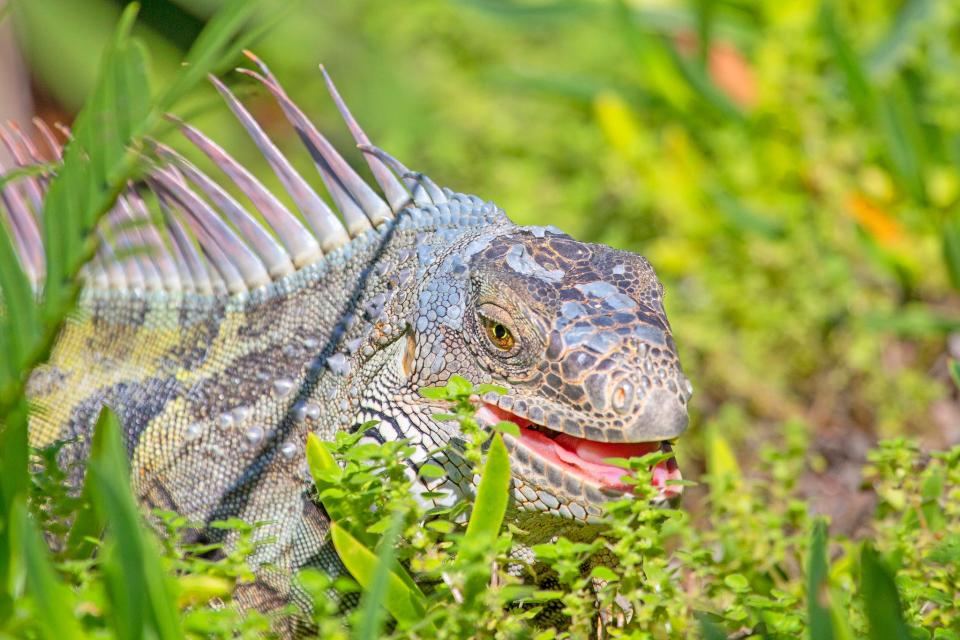Green iguanas may have been given away as prizes at Apple Scrapple: What to know
A vendor who may have given away green iguanas as prizes at last weekend's Apple Scrapple Festival in Bridgeville has the Delaware Department of Agriculture concerned.
Green iguanas could wreak ecological harm if released and harbor bacteria that can make people sick, the department said in a news release.
“This is not a prize many people would look to win at a festival, and we don’t want individuals or families to feel that they have to keep an animal that they are not prepared to care for," said State Veterinarian Karen Lopez.
The department works with reptile rehabilitation and rescue groups that can care for green iguanas and anyone who wishes to rehome one should contact the department's Poultry and Animal Health Section at 302-698-4500.

What to know about green iguanas
Native to Central America, parts of South America and some Caribbean islands, according to the Florida Fish and Wildlife Conservation Commission, green iguanas can reach over 5 feet in length and weigh up to 17 pounds.
While not native to Delaware, green iguanas can theoretically survive in the wild here, according to department spokesperson Stacey Hofmann. However, if the temperature remains below freezing for more than eight hours, they will die, she said.
More: Why the Sussex County Council is being sued over a solar farm permit
Green iguanas are omnivores, eating mainly plants and occasionally insects. If released in Delaware, they will eat plants that native species depend on to survive, according to Hofmann, as well as fruit, which would impact the agriculture industry.
Green iguanas can also transmit Salmonella bacteria and other harmful bacteria that can make people sick if they are not properly cared for and cleaned. Salmonella infections should be reported to the Delaware Division of Public Health Office of Infectious Disease Epidemiology at 302-744-4990 or by emailing reportdisease@delaware.gov.
Sussex: Biden in Rehoboth Beach this weekend after high-stakes week responding to Israel crisis
What safety precautions to take around pets
If you took home a green iguana, the Department of Agriculture recommends the following safety precautions when caring for iguanas and other pets:
Always wash your hands thoroughly with soap and water after touching, cleaning or caring for an animal or its habitat.
Don’t kiss cats, dogs, chickens, turtles, lizards or other pets or animals.
Young children, people with weakened immune systems and older adults should not touch animals that have a high risk of transmitting disease, such as turtles, frogs, chickens or ducks.
Don’t eat or drink around high-risk animals or in areas where they live and roam. Don’t let iguanas roam freely in areas where food is prepared or stored.
Clean your pet’s habitat and its content outdoors. If you must clean indoors, avoid using the kitchen sink and instead use a bathtub or large sink that can be cleaned and disinfected.
Take your pet to the veterinarian regularly.
Shannon Marvel McNaught reports on Sussex County and beyond. Reach her at smcnaught@gannett.com or on Twitter @MarvelMcNaught.
This article originally appeared on Delaware News Journal: State issues alert on green iguanas following Apple Scrapple festival

